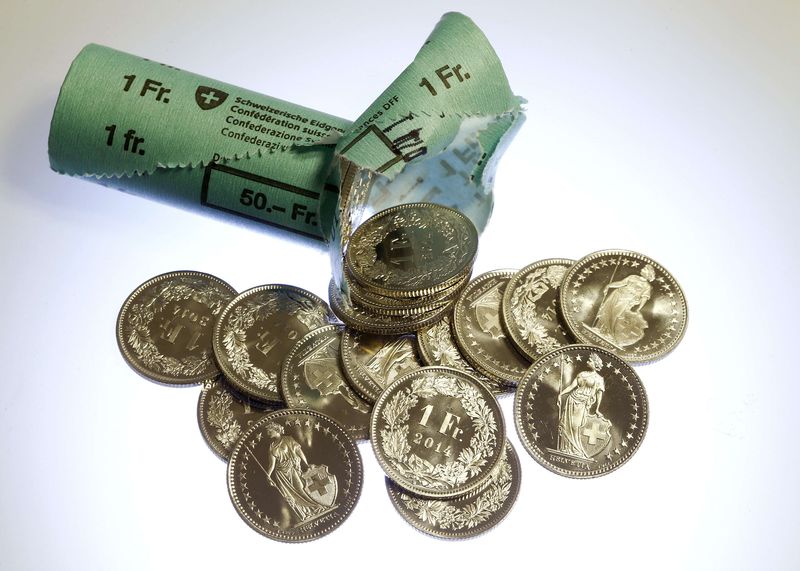Investing.com - The Swiss franc rose to one-month highs against the dollar on Wednesday and gained against the euro as mounting concerns that Greece could default on its loans and exit the euro zone spurred increased safe-haven demand.
USD/CHF hit lows of 0.9233, the lowest level since May 18 and was last at 0.9270, off 0.54% for the day.
The Swissy was boosted by safe-haven buying amid mounting concerns over the approaching deadline for Greece’s repayments to the International Monetary Fund.
Europe wants Greece to make spending cuts worth €2 billion in order to secure a deal that will unlock additional funds before its bailout expires at the end of June and it must repay €1.6 billion to the IMF.
A default by Greece could lead to the country’s exit from the euro zone.
But comments by Prime Minister Alexis Tsipras on Tuesday in which he accused the county’s creditors of trying to "humiliate" Greece with more cuts indicated that Athens is sticking to a hard line in negotiations.
Investors were looking ahead to a monetary policy meeting of the Swiss National Bank on Thursday. Most analysts expected the SNB to keep monetary policy on hold, but recent weak inflation data raised concerns that it could ease policy further.
Switzerland’s central bank cut its interest rate target into negative territory, between minus 1.25% and minus 0.25% in January. The move was announced at the same time the bank scrapped its cap of 1.20 francs per euro, which sent the franc sharply higher.
The SNB could push rates further into negative territory, or charge even higher negative interest rates on some of the banks who deposit funds with it.
Negative rates effectively mean banks are paying the central bank to hold their money.
The euro was also lower against the franc, with EUR/CHF last at 1.0454 after touching session lows of 1.0404.
Investors were also looking ahead to the Federal Reserve’s rate statement later in the day for any indication about a possible timeline for hiking interest rates, which have remained close to zero since late 2008.
Data on Tuesday showing that the number of building permits issued in the U.S. rose to an almost eight-year high in May added to the view that the economy is regaining momentum after a weak first quarter.
Housing starts fell last month following strong gains in April but remained at levels consistent with a strengthening housing market.
The U.S. dollar index, which measures the greenback’s strength against a trade-weighted basket of six major currencies, eased to 95.15, holding above Tuesday’s lows of 94.80.
